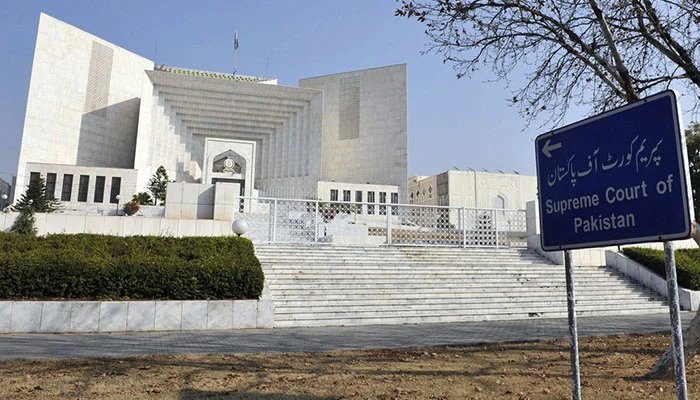SC reserves opinion on presidential reference seeking open-ballot voting in Senate election
CJP said Parliament passes resolutions; court could only give opinion on the implementation of Article 226
ISLAMABAD: The Supreme Court has decided to reserve its opinion regarding the presidential reference seeking an open-ballot voting system in the Senate elections.
According to Geo.tv, a five-judge, larger bench, headed by Chief Justice of Pakistan Gulzar Ahmed heard the case.
During the hearing, Pakistan Bar Council's lawyer Mansoor Usman Awan argued that holding elections through an open-ballot system has been unprecedented in Pakistan, adding that the secrecy of casting votes is the essence of elections.
The Chief Justice of Pakistan remarked that it was the Parliament's job to pass resolutions so that the electoral process could become transparent, adding that the court will only give its opinion regarding the implementation of Article 226.
Chief Justice Gulzar Ahmed added that all political parties have acknowledged the rampant corruption in the process of Senate elections and videos proving that have also emerged, however, no one is ready to take steps to eradicate the problem.
"All parties demand transparent elections but no one is ready to take an initiative," the CJP said. "We have been hearing from day one that the party decides which candidates to vote for."
Arguments by Lahore High Court lawyer
During the hearing, the lawyer of the Lahore High Court Khurram Chughtai said that the federal government has no authority to seek an opinion from the court. In response, the Chief Justice said that the reference has been submitted to the court by the president of Pakistan.
Khurram Chughtai said that the Attorney General is the advocate of the federal government and not the president, adding that opinions were sought from all political parties before drafting the Election Act.
Sheikh Rashid, Arif Alvi, and Shibli Faraz were also members of the Election Act Committee, while 89 meetings were held before drafting the Act, he said.
Khurram Chughtai added that President Arif Ali himself was a member of the Constitutional Reforms Committee, along with many of the sitting ministers in the cabinet.
Chughtai also said that the president of Pakistan has to act on the advice of the cabinet or the prime minister, on which the CJP told him to limit his arguments to the questions raised.
'Current reference most important case of my life': Attorney General
During the hearing, the Attorney General said that the current reference is "the most important case of his life," adding "deep states prefer secrecy of the election as compared to its transparency."
-
Security forces gun down 30 terrorists in multiple IBOs in KP: ISPR
-
MQM-P calls for new province in Sindh
-
US report validates Pakistan military edge over India: PM
-
Banned TTP poses serious threat to Pakistan security: UNSC panel
-
CM Afridi clarifies remarks on by-poll after ECP requests army deployment
-
Dubai sees 3.2m Pakistani passengers in 2025 as airport sets new milestone
-
Security forces kill 23 Indian proxy terrorists in KP's Kurram
-
Pakistan to construct island to boost oil exploration: report












